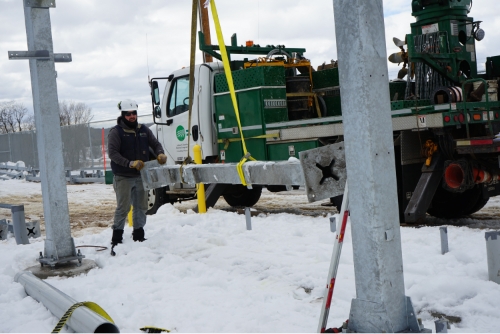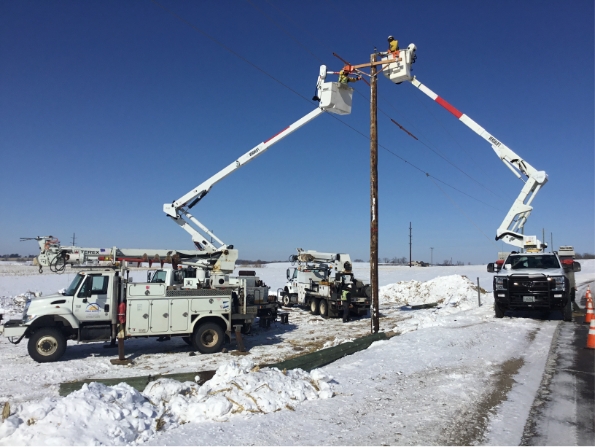Heating and cooling costs are usually the biggest part of your energy bill, accounting for up to ⅔ of your home’s energy expense. Knowing the type of heating and cooling system, how the system works, and how to properly maintain the system will help you get the most efficiency from your system.
How a Heat Pump System Works
A heat pump transfers heat from one location to another. In the winter, heat in the outdoor air is pumped through the unit and distributed through the house. In the summertime, the cycle is reversed to cool the home.
To properly maintain the system and keep your energy costs to a minimum, here are a few helpful hints:
- Clean or change filters once a month
- Keep heating and cooling settings at one temperature
- Recommended settings are 78º F in summer and 68º F in winter
- Turning thermostats up and down causes the system to run less efficiently except when using a programmable adaptive recovery thermostat
- Keep plants, shrubs, and other obstacles at least two feet away from the outdoor unit
- The unit requires proper air flow to operate efficiently
- Clear any snow and ice away from outdoor unit during winter
- Clean return air grilles and room registers to keep air flowing freely
- Have your unit checked by a trained service technician at least once every 3 years
How Gas & Oil Systems Operate
- Gas and oil systems generate heat from a furnace or boiler
- A furnace heats air and blows it through heat ducts to the registers or grilles in the home
- A boiler heats water, and the water is circulated through pipes to radiators or baseboards
Gas & Oil System Maintenance
As with any other system, a gas or oil system must be properly maintained. Here are some tips:
- Keep radiators or convectors clean. This applies to hot water, steam, or electric baseboard systems.
- Replace or clean the filter on a forced-air system at least once a month.
- Check flue and chimney for possible obstruction and have cleaned, if necessary. This step is especially important in order to keep pollutants from contaminating the indoor air quality.
- Have oil furnaces serviced once a year by a trained service technician.
- Have gas furnaces serviced every 2 years by a trained service technician.
- Poorly maintained gas or oil furnaces can produce dangerous levels of carbon monoxide, which can lead to serious sickness and possibly death. It is recommended that any home with a gas or oil system have a carbon monoxide detector.
How Electric Baseboards Work
Electric baseboards use resistance heating like electric stoves and space heaters. This is the most expensive form of heating, so use it as sparingly as possible.
Turn off baseboard heaters in unoccupied rooms.


